- Home
- Salman Rushdie
Haroun and the Sea of Stories Page 3
Haroun and the Sea of Stories Read online
Page 3
The slick gent greeted Rashid with a movie-star smile whose insincerity made Haroun feel ill. ‘Esteemed Mr Rashid,’ he said. ‘An honour for us. A legend comes to town.’ If Rashid were to flop in the Valley of Κ the way he had in the Town of G, Haroun thought, this gent would soon change his tune. But Rashid looked pleased by the flattery, and anything that cheered him up was worth putting up with for the present … ‘The name,’ the slick gent said, inclining his head slightly and clicking his heels together, ‘is Buttoo.’
‘Almost the same as the Mail Coach driver!’ Haroun exclaimed, and the slick gent with the ratty moustache threw up his hands in horror. ‘Not at all the same as any bus driver,’ he shrieked. ‘Suffering Moses! Do you know to whom you speak? Do I look the bus-driver type?’
‘Well, excuse me,’ Haroun began, but Mr Buttoo was marching away, nose in air. ‘Respected Mr Rashid, to the lakeside,’ he commanded over his shoulder. ‘Bearers will bring your bags.’
During the five-minute walk to the shore of the Dull Lake, Haroun began to feel distinctly uneasy. Mr Buttoo and his party (which now included Rashid and Haroun) were permanently surrounded by exactly one hundred and one heavily armed soldiers; and such ordinary people as Haroun noticed on the street wore extremely hostile expressions. ‘There’s a bad feeling in this town,’ he told himself. If you live in a sad city you know unhappiness when you run into it. You can smell it on the night air, when the fumes of cars and trucks have faded away and the moon makes everything look clearer. Rashid had come to the Valley because he remembered it as the most joyful of places, but it was plain that trouble had found its way up here now.
‘How popular can this Buttoo be if he needs all these soldiers to protect him?’ Haroun wondered. He tried to whisper to Rashid that perhaps the slick gent with the face-fuzz wasn’t the right fellow to support in the election campaign, but there were always too many soldiers within earshot. And then they reached the Lake.
Waiting for them was a boat in the shape of a swan. ‘Nothing but the best for distinguished Mr Rashid,’ crooned snooty Mr Buttoo. ‘Tonight you stay in the finest houseboat on the Lake, as my guest. I trust it will not prove too humble for a grandee as exalted as you.’ He sounded polite, but he was really being insulting, Haroun understood. Why did Rashid put up with it? Haroun climbed into the swan-boat, feeling irritated. Oarsmen in army uniform began to row.
Haroun looked down into the water of the Dull Lake. It seemed to be full of strange currents, criss-crossing in intricate patterns. Then the swan-boat passed what looked like a carpet floating on the water’s surface. ‘Floating Garden,’ Rashid told Haroun. ‘You weave lotus-roots together to make the carpet and then you can grow vegetables right here on the Lake.’ His voice had a melancholy ring again, so Haroun murmured, ‘Don’t be sad.’
‘Sad? Unhappy?’ yelped Snooty Buttoo. ‘Surely eminent Mr Rashid is not dissatisfied with the arrangements?’ Rashid the storyteller had always been incapable of inventing stories about himself, so he answered truthfully: ‘Sir, not so. This is an affair of the heart.’
Why did you tell him that? Haroun thought fiercely, but Snooty Buttoo was delighted by the revelation. ‘Not to worry, unique Mr Rashid,’ he cried tactlessly. ‘She may have left you but there are plenty more fish in the sea.’
‘Fish?’ Haroun thought, in a rage. ‘Did he say fish?’ Was his mother a pomfret? Must she now be compared to a glumfish or a shark? Really, Rashid should bop this Buttoo right on his stuck-up nose!
The storyteller trailed a hand listlessly in the waters of the Dull Lake. ‘Ah, but you must go a long, long way to find an Angel Fish,’ he sighed.
As if in response to his words, the weather changed. A hot wind began to blow, and a mist rushed at them across the water, The next thing they knew they could see nothing at all.
‘Never mind the Angel Fish,’ Haroun thought. ‘I can’t even, just at the moment, find the tip of my nose.’
Chapter 3
The Dull Lake
Haroun had already smelled unhappiness on the night air, and this sudden mist positively stank of sadness and gloom. ‘We should have stayed at home,’ he though. ‘No shortage of long faces there.’
‘Phoo!’ shouted Rashid Khalifa’s voice through the greeny-yellow mist. ‘Who made that smell? Come on, admit.’
‘It’s the mist,’ Haroun explained. ‘It’s a Mist of Misery.’ But at once Snooty Buttoo’s voice cried out, ‘Lenient Mr Rashid, it seems the boy wants to cover up his stink-making with inventions. I fear he is too much like the folk of this foolish Valley—crazy for make-believe. What I must put up with! My enemies hire cheap fellows to stuff the people’s ears with bad stories about me, and the ignorant people just lap it up like milk. For this reason I have turned, eloquent Mr Rashid, to you. You will tell happy stories, praising stories, and the people will believe you, and be happy, and vote for me.’
No sooner had Buttoo uttered these words than a harsh, hot wind blew across the Lake. The mist was dispersed, but now the wind burned into their faces, and the waters of the Lake became choppy and wild.
‘It’s not in the least Dull, this Lake,’ exclaimed Haroun. ‘In fact, it’s positively Temperamental!’ As the words left his lips, a penny dropped. ‘This must be the Moody Land,’ he burst out.
Now the Tale of the Moody Land was one of Rashid Khalifa’s best-loved stories. It was the story of a magical country that changed constantly, according to the moods of its inhabitants. In the Moody Land, the sun would shine all night if there were enough joyful people around, and it would go on shining until the endless sunshine got on their nerves; then an irritable night would fall, a night full of mutterings and discontent, in which the air felt too thick to breathe. And when people got angry the ground would shake; and when people were muddled or uncertain about things the Moody Land got confused as well—the outlines of its buildings and lamp-posts and motor-cars got smudgy, like paintings whose colours had run, and at such times it could be difficult to make out where one thing ended and another began … ‘Am I right?’ Haroun asked his father. ‘Is this the place the story was about?’
It made sense: Rashid was sad, so the Mist of Misery enveloped the swan-boat; and Snooty Buttoo was so full of hot air that it wasn’t surprising he’d conjured up this boiling wind!
‘The Moody Land was only a story, Haroun,’ Rashid replied. ‘Here we’re somewhere real.’ When Haroun heard his father say only a story, he understood that the Shah of Blah was very depressed indeed, because only deep despair could have made him say such a terrible thing.
Rashid, meanwhile, was arguing with Snooty Buttoo. ‘Surely you don’t want me to tell just sugar-and-spice tales?’ he protested. ‘Not all good stories are of that type. People can delight in the saddest of sob-stuff, as long as they find it beautiful.’
Snooty Buttoo flew into a rage. ‘Nonsense, nonsense!’ he shrieked. ‘Terms of your engagement are crystal clear! For me you will please to provide up-beat sagas only. None of your gloompuss yarns! If you want pay, then just be gay.’
At once the hot wind began to blow with redoubled force; and as Rashid sank into silent wretchedness the greeny-yellow mist with the toilet stink came rushing towards them across the Lake; and the water was angrier than ever, slopping over the side of the swan-boat and rocking it alarmingly from side to side, as if it were responding to Buttoo’s fury (and also, in point of fact, to Haroun’s growing anger at Buttoo’s behaviour).
The mist enfolded the swan-boat once again, and once again Haroun couldn’t see a thing. What he heard were sounds of panic: the uniformed oarsmen crying out, ‘O! O! Down we go!’ and the infuriated shrieks of Snooty Buttoo, who seemed to take the weather conditions as a personal insult; and the more shrieks and yelps there were, the rougher the waters became, and the hotter and more violent the wind. Flashes of lightning and rolls of thunder lit up the mist, creating weird neon-like effects.
Haroun decided there was nothing for it but to put his Moody Land theory
into practice. ‘Okay,’ he shouted into the mist. ‘Everybody listen. This is very important: everybody, just stop talking. Not a word. Zip the Lips. Dead silence is very important, on the count of three, one, two, three.’ A new note of authority had come into his voice, which surprised him as much as anyone, and as a result the oarsmen and Buttoo, too, obeyed him without a murmur. At once the boiling breeze fell away, the thunder and lightning stopped. Then Haroun made a conscious effort to control his irritation at Snooty Buttoo, and the waves calmed down the instant he cooled off. The smelly mist, however, remained.
‘Just do one thing for me,’ Haroun called to his father. ‘Just this one thing. Think of the happiest times you can remember. Think of the view of the Valley of Κ we saw when we came through the Tunnel of I. Think about your wedding day. Please.’
A few moments later that malodorous mist tore apart like the shreds of an old shirt and drifted away on a cool night breeze. The moon shone down once more upon the waters of the Lake.
‘You see,’ Haroun told his father, ‘it wasn’t only a story, after all.’
Rashid actually laughed out loud in delight. ‘You’re a blinking good man in a tight spot, Haroun Khalifa,’ he said with an emphatic nod. ‘Hats off to you.’
‘Gullible Mr Rashid,’ cried Snooty Buttoo, ‘surely you don’t believe the lad’s hocusing and pocusing? Freak weather conditions came, and then went. No more to be said.’
Haroun kept his feelings about Mr Buttoo to himself. He knew what he knew: that the real world was full of magic, so magical worlds could easily be real.
~ ~ ~
The houseboat was called Arabian Nights Plus One, because (as Mr Buttoo boasted) ‘even in all the Arabian Nights you will never have a night like this.’ Each of its windows had been cut out in the shape of a fabulous bird, fish or beast: the Roc of Sindbad the Sailor, the Whale That Swallowed Men, a Fire-Breathing Dragon, and so on. Light blazed out through the windows, so that the fantastic monsters were visible from some distance, and seemed to be glowing in the dark.
Haroun followed Rashid and Mr Buttoo up a wooden ladder on to a verandah of intricately carved wood and into a living room with crystal chandeliers and throne-like seats with ornately brocaded cushions and walnut tables carved to look like flat-topped trees in which you could see tiny birds and also what looked like winged children but were, of course, fairies. The walls were lined with shelves full of leather-bound volumes, but most of these turned out to be fakes, concealing drinks cabinets and broom cupboards. One shelf, however, bore a set of real books written in a language Haroun could not read, and illustrated with the strangest pictures he had ever seen. ‘Erudite Mr Rashid,’ Buttoo was saying, ‘you in your line of work will be interested in these. Here for your delectation and edification is the entire collection of tales known as The Ocean of the Streams of Story. If you ever run out of material you will find plenty in here.’
‘Run out? What are you saying?’ Rashid wildly asked, suddenly fearful that Buttoo had known, all along, about the terrible events in the Town of G. But Buttoo patted him on the shoulder: ‘Touchy Mr Rashid! It was only a joke, a passing lightness, a cloud blown away by the breeze. Of course we await your recital with full confidence.’
But Rashid was down in the dumps again. It was time to call it a day.
The uniformed boatmen showed Rashid and Haroun to their bedrooms, which turned out to be even more opulent than the lounge. In the exact centre of Rashid’s room stood an enormous painted wooden peacock. With little flourishes of the arms, the boatmen removed its back to reveal a large and comfortable bed. Haroun had the adjoining room, in which he found an equally outsize turtle, which likewise became a bed when the boatmen removed its shell. Haroun felt a little peculiar at the notion of sleeping on a turtle whose shell had been removed, but, remembering his manners, he said, ‘Thank you, it is very pleasant.’
‘ “Very pleasant”?’ hooted Snooty Buttoo from the doorway. ‘Inappropriate young person, you are aboard Arabian Nights Plus One! “Very pleasant” does not cover it at all! Admit, at the very least, that it is all Super-Marvelloso, Incredibable, and wholly Fantastick.’
Rashid gave Haroun a look that said ‘We should have thrown this fellow into the Lake while we had the chance,’ and interrupted Buttoo’s screeches. ‘It is, as Haroun has stated, very pleasant indeed. Now we will sleep. Goodnight.’
Buttoo stalked off to the swan-boat in a great huff. ‘If people have no taste,’ was his parting shot, ‘the best things are a waste. Tomorrow, unappreciative Mr Rashid, it is your turn. Let us see how “very pleasant” your audience finds you.’
~ ~ ~
That night, Haroun found it difficult to get to sleep. He lay on the turtle’s back in his favourite long nightshirt (bright red with purple patches) and tossed and turned, and just as he was about to drop off at long last he was woken up completely by noises from Rashid’s room next door: a creaking and a rumbling and a groaning and a mumbling and then a low cry:
‘It’s no use—I won’t be able to do it—I’m finished, finished for good!’
Haroun tiptoed to the connecting door and very carefully opened it, just a crack; and peeped. He saw the Shah of Blah in a plain blue nightshirt without any purple patches at all, pacing miserably around his peacock bed, muttering to himself while the floorboards creaked and moaned. ‘ “Only praising tales” indeed. I am the Ocean of Notions, not some office-boy for them to boss about! —But no, what am I saying? —I’ll get up on stage and find nothing in my mouth but arks. —Then they’ll slice me in pieces, it’ll be all up with me, finito, khattam-shud! —Much better to stop fooling myself, give it all up, go into retirement, cancel my subscription. —Because the magic’s gone, gone for ever, ever since she left.’
Then he turned to stare at the connecting door and called loudly, ‘Who’s there?’ So there was nothing for it; Haroun had to say, ‘It’s me. I couldn’t sleep. I think it’s the turtle,’ he added. ‘It’s just too weird.’
Rashid nodded gravely. ‘It’s a funny thing, but I’ve been having trouble with this peacock, myself. For me a turtle would be better. How do you feel about the bird?’
‘Definitely better,’ Haroun admitted. ‘A bird sounds okay.’
So Haroun and Rashid exchanged bedrooms; and that was why the Water Genie who visited Arabian Nights Plus One that night and crept into the Peacock Room found an unsleeping boy of about his own size staring him in the face.
~ ~ ~
To be precise: Haroun had just dozed off when he was woken by a creaking and a rumbling and a groaning and a mumbling; so his first thought was that his father hadn’t found the turtle any easier to sleep on than the peacock. Then he realized that the noise wasn’t coming from the Turtle Room, but from his own bathroom. The bathroom door was open and the light was on, and as Haroun watched he saw, silhouetted in the open doorway, a figure almost too astonishing for words.
It had an outsize onion for a head and outsize aubergines for legs, and it was holding a toolbox in one hand and what looked like a monkey wrench in the other. A burglar!
Haroun tiptoed towards the bathroom. The being inside was talking non-stop in a mumbling, grumbling way.
‘Put it in, take it out. The fellow comes up here, so I have to come and install it, rush job, never mind my workload. —Then, wham, bam, he cancels his subscription, and guess who has to come back and take the equipment out, right away, pronto, you’d think there was a fire. —Now where did I put the blasted thing? —Has somebody been meddling? —Can’t trust anybody any more. —Okay, okay, okay, let’s be methodical. —Hot tap, cold tap, go halfway in between, go up in the air six inches, and there should be your Story Tap. —So where’s it gone? Who’s pinched it? —Whoops, what’s this? —Oho, aha, is that where you are? Thought you could hide from me but I’ve got you now. Okay. Time to Disconnect.’
While this remarkable monologue was being delivered, Haroun Khalifa moved his head very, very slowly, until half an eye was looking a
round the door-jamb into the bathroom: where he saw a small, ancient-looking man, no bigger than himself, wearing a huge purple turban on his head (that was the ‘onion’) and baggy silk pajamas gathered at the ankles (those were the ‘aubergines’). This little fellow sported an impressive full set of whiskers, of a most unusual colour: the palest, most delicate shade of sky blue.
Haroun had never seen blue hair before, and leant forward a little in curiosity; whereupon, to his horror, the floorboard on which he stood emitted a loud, unarguable creak. The blue-beard whirled about, spun all the way round three times, and disappeared; but in his haste he let the monkey wrench fall from his hand. Haroun dashed into the bathroom, grabbed it and held it close.
Slowly and in what seemed like a most disgruntled fashion (though it was hard for Haroun to be sure of this, as he’d never seen anyone materializing before), the little blue-beard reappeared in the bathroom. ‘No kidding, enough’s enough, party’s over, fair’s fair,’ he snapped. ‘Give it back.’
‘No,’ replied Haroun.
‘The Disconnector,’ the other pointed. ‘Hand it over, return to sender, restore to rightful owner; give up, yield, surrender.’
Now Haroun noticed that the tool he held was no more like a monkey wrench than the blue-beard’s head was like an onion: in other words, it had the general outline of a wrench, but it was somehow more fluid than solid, and was made up of thousands of little veins flowing with differently coloured liquids, all held together by some unbelievable, invisible force. It was beautiful.
‘You’re not getting it back,’ Haroun said firmly, ‘until you tell me what you’re doing here. Are you a burglar? Shall I call the cops?’

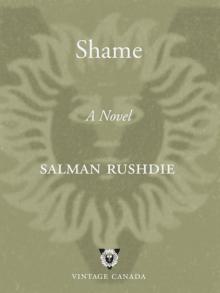 Shame
Shame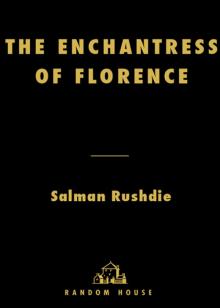 The Enchantress of Florence
The Enchantress of Florence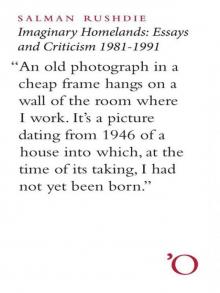 Imaginary Homelands: Essays and Criticism 1981-1991
Imaginary Homelands: Essays and Criticism 1981-1991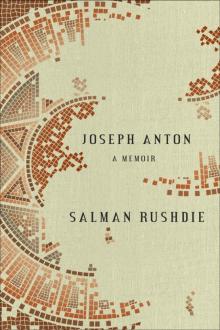 Joseph Anton: A Memoir
Joseph Anton: A Memoir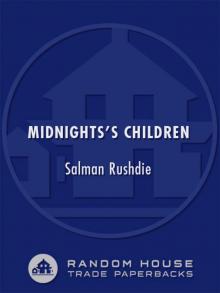 Midnight's Children
Midnight's Children East, West: Stories
East, West: Stories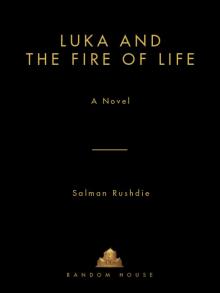 Luka and the Fire of Life
Luka and the Fire of Life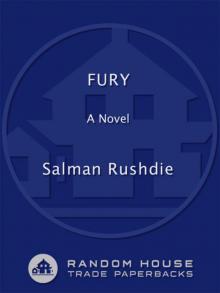 Fury Fury Fury
Fury Fury Fury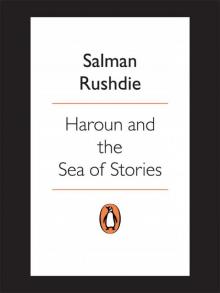 Haroun and the Sea of Stories
Haroun and the Sea of Stories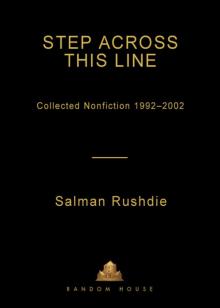 Step Across This Line: Collected Nonfiction 1992-2002
Step Across This Line: Collected Nonfiction 1992-2002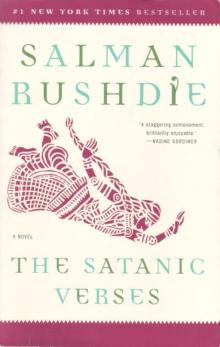 The Satanic Verses
The Satanic Verses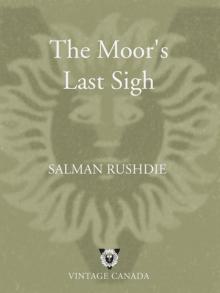 The Moor's Last Sigh
The Moor's Last Sigh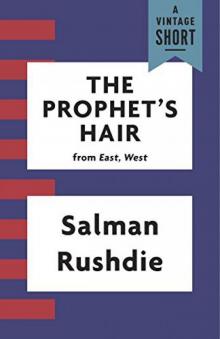 The Prophet's Hair
The Prophet's Hair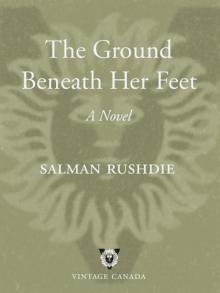 The Ground Beneath Her Feet
The Ground Beneath Her Feet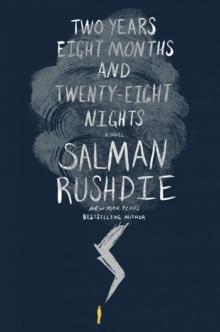 Two Years Eight Months and Twenty-Eight Nights
Two Years Eight Months and Twenty-Eight Nights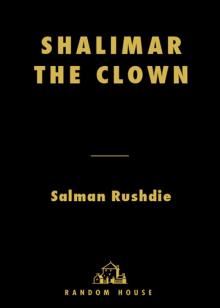 Shalimar the Clown
Shalimar the Clown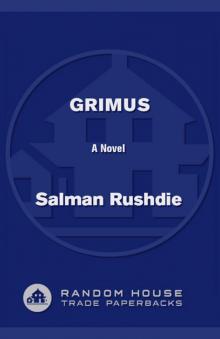 Grimus
Grimus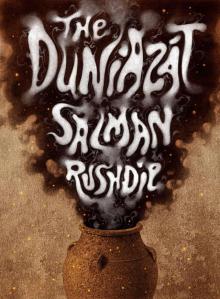 The Duniazát
The Duniazát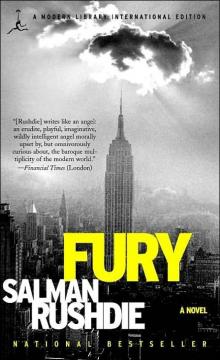 Fury
Fury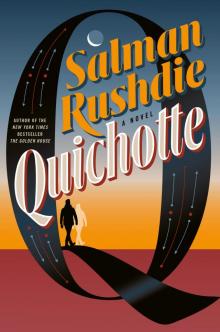 Quichotte
Quichotte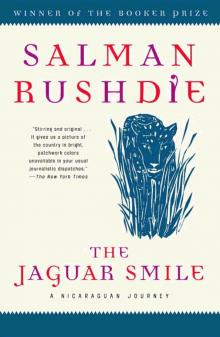 The Jaguar Smile
The Jaguar Smile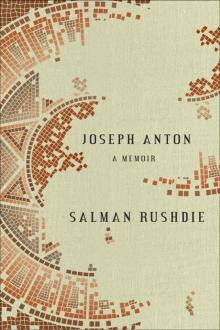 Joseph Anton
Joseph Anton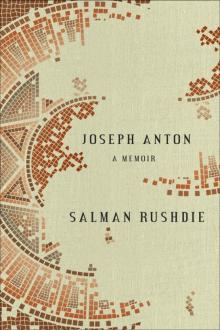 Joseph Anton: A Memoir: A Memoir
Joseph Anton: A Memoir: A Memoir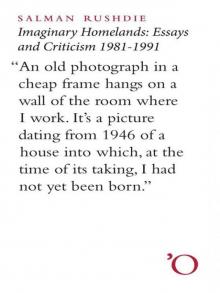 Imaginary Homelands
Imaginary Homelands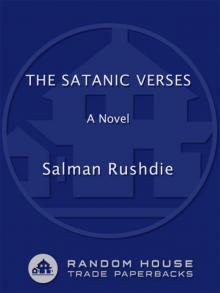 The Satanic Verses: A Novel
The Satanic Verses: A Novel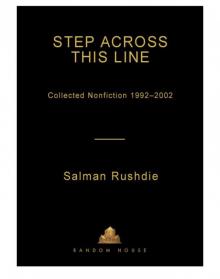 Step Across This Line
Step Across This Line East, West
East, West